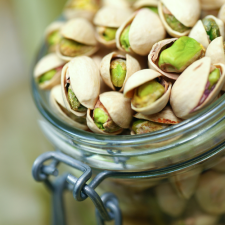Americans Say Snacking Helps Relieve Stress & Boredom 10/4/2016
Trend watchers have noticed a not-so-subtle shift in American eating patterns. Gone are the days of three well-balanced home-cooked meals, today, we’re a nation of snackers. Researchers found that it’s not just a change in the way we eat, but in what we’re eating. For decades, snacks were largely found in the candy or chips aisle, now we’re nibbling on everything from granola bars to yogurt throughout the day to curb our cravings—in fact, 70% of consumers agree that anything can be considered a snack. This is creating both opportunity and competition in the snack food category. Here, we look at what’s catching the consumer’s eye and what motivates them to munch.
Although a large majority (82%) of consumers believe that snacks can be both healthy and tasty, brands are just starting to get on board. Almost three quarters of consumers say they wish there were healthier snack options and 61% say most snacks have too many artificial ingredients. If consumers want healthy, natural snacks, why aren’t they chomping on celery sticks all day? It comes down to flavor. Americans enjoy big, bold food flavors and this is reflected in their snack choices—62% ranked flavor above health when selecting snack foods. This reveals an opportunity for brands in the better-for-you snack category to disrupt the snack aisle with innovative, flavorful, better-for-you foods.
There are countless reasons people reach for a bag of pretzels or a granola bar, but hunger is not at the top of the list. Researchers found that 63% of Americans say that they indulge in snacks as a reward, 62% eat to relieve stress, and more than half say that snacking is a good way to alleviate boredom. Consumers are looking for ways to manage their wellbeing and finding comfort in the snacks they choose. Brands that highlight the health and wellness benefits of their products and market to consumers during these key snacking occasions can appeal to their motivations for snacking and influence their choices.
Working moms, busier schedules, and shifting family dynamics are changing the way meals are prepared and enjoyed. Research shows that the majority of Millennial Moms and Dads are employed full or part time and that leaves less time for meal preparation. In fact, Americans spend fewer than 30 minutes per day cooking dinner and most meals are eaten on-the-go. With this in mind, it’s no surprise that snacking occasions are two times higher for Millennials than other age groups. Millennials are also more likely to have at least one child in their household, increasing the likelihood of buying and eating more snack foods and setting up eating patterns for future generations.


Women’s Marketing is the leading media strategy, planning, and buying organization for emerging and high-growth brands. We offer a deep understanding of how women consume, engage, and take action with media, with unmatched expertise in beauty, health, fashion, food, and beverage. Every Women’s Marketing client enjoys the benefits associated with the significant purchasing scale we achieve through the vast network of companies we serve and our strong relationships with global media leaders.